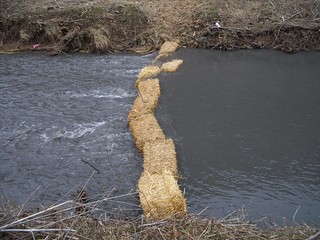Obama urged to act on protecting water resources

The American Clean Energy Agenda (of which KFTC is a member) is urging President Obama to take action to lessen the impact of our nation’s energy policy on our water resources.
ACEA this afternoon released a proposed Executive Order making water a major national priority and moving the U.S. to a clean energy future. The draft executive order would require:
- the completion of a long-overdue national water census;
- the creation of a “U.S. Water Budget”; and
- a plan for a shift by 2030 from fossil fuel and nuclear power to clean energy, increased energy efficiency, and enhanced energy storage technologies in key watersheds identified by the U.S. Geological Survey.
The executive order can be found at www.americancleanenergyagenda.org/news/
The American Clean Energy Agenda (ACEA) represents 120 citizen organizations with nearly 2 million members in 33 states and the District of Columbia.
Titled “Identification of Critical Water Resources and Mitigation of Water Use Competition in Vulnerable Watersheds,” ACEA’s draft executive order for consideration by President Obama would do three things:
1. Complete the federal government water budget study ( the National Water Census) for the United States for water management purposes ordered by Congress in the Omnibus Public Land Management Act of 2009 (Public Law 111-11, also known as the SECURE Water Act) as quickly as practicable and take steps to reduce water consumption, especially in vulnerable watersheds.
2. Create the Water Budget Planning Commission. The commission would consist of the Departments of Agriculture, Energy, Defense, Interior, EPA and the Council on Environmental Quality and make recommendations for water use mitigation approaches consistent with the sustainability criteria established in this Order. The commission would establish recommendations to address the growing competition for water by thermoelectric power plant use (including fuel extraction to operate thermoelectric power plants such as mining and fracking) and farming through mitigation efforts that reduce the burden on water resources without threatening the food supply.
3. Reduce or eliminate, to the extent practicable, by 2030 water-intensive, steam-cycle coal-fired, nuclear and natural-gas fired power plants that derive water from or impact critical watersheds identified by the U.S. Geological Survey with the less water-intensive optimal electric generation mix of: (1)End Use Energy Efficiency; (2) Solar PV and Wind Power (non-combustion renewables, both utility-scale and distributed); (3) Distributed Power Technologies; (4) Demand Response; (5) Storage Technologies; and (6) Simple cycle and combined cycle natural gas-fired power plants, with the goal of limiting deployment of these resources as much as practicable. The goal is to shift to technologies that are affordable or have the greatest potential to come down in cost, use and consume the least amount of water, generate the least pollution, effectively reduce greenhouse gas emissions and maintain grid reliability.
A January 2013 ACEA national opinion survey found that 92 percent of Americans think “U.S. energy planning and decision making” should be based on “a comprehensive understanding of what our national water resources are” – a national water roadmap that Congress asked for, but which was never produced. The national water roadmap attracts the support of 92 percent of Republicans, 89 percent of Independents, and 94 percent of Democrats. More information about the full survey can be found here.
In the U.S. Energy Policy Act of 2005, Congress instructed the Secretary of Energy to submit a report assessing the state of water supply and demand and recommending future actions. The Departmnent of Energy split the report into two parts: a general review of the connections between water and energy in the U.S. and recommendations to offer Congress guidance in policy making. The general review portion was submitted to Congress in 2007. However, the recommendations part, called the “Roadmap” has still not been released, though it was prepared some time ago.
Recent News
Kentucky’s past legislative session showed alarming trend toward government secrecy
Churchill Downs takes more than it gives. That's why the Kentucky Derby is a no-go for me
‘We must never forget.’ Kentucky town installs markers for lynching victims.
Featured Posts
Protecting the Earth
TJC Rolling Out The Vote Tour – a KFTC Reflection Essay
KFTC Voter Empowerment Contractor Reflection Essay
Archives
- Home
- |
- Sitemap
- |
- Get Involved
- |
- Privacy Policy
- |
- Press
- |
- About
- |
- Bill Tracker
- |
- Contact
- |
- Links
- |
- RSS



Add new comment